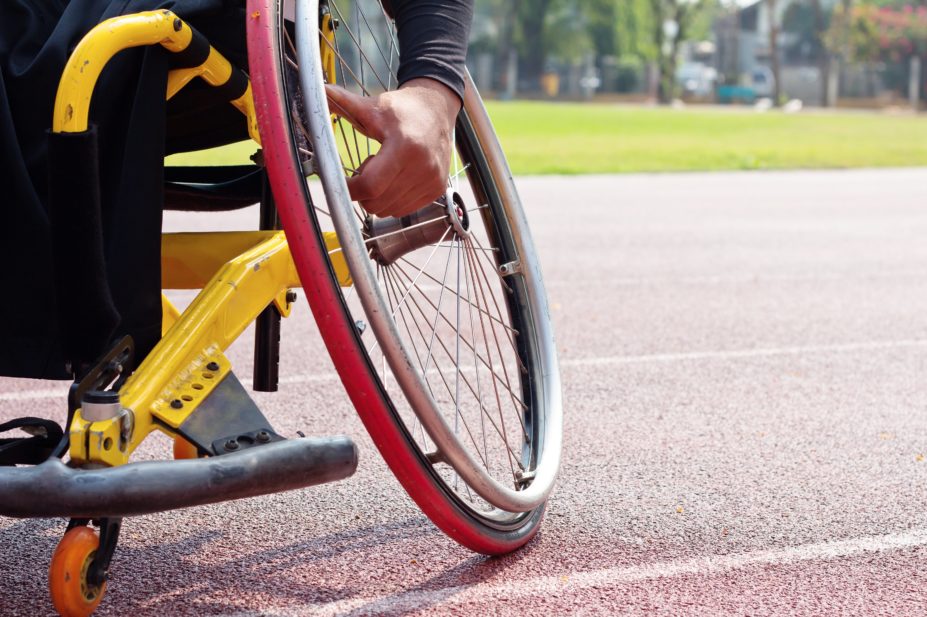
Shutterstock.com
I thought I knew and understood enough about equality, diversity and inclusion (EDI). I thought I was committed to its realisation. Because I have no ill feeling towards people from different backgrounds to me. Because I’m a decent person. Because I try to do right by people. But in 2012, my eyes were opened to my lack of awareness.
I was seconded to the Royal Holloway Rowing Village for the Olympic and Paralympic Games, where I was to lead a multidisciplinary team of pharmacy staff, physiotherapists and sports medicine doctors providing services in the village’s polyclinic. After the success of the Olympics, the euphoria in the village was palpable, and we readied for the arrival of the Paralympians.
On the first day of the clinic’s new incarnation, I welcomed a beaming athlete in a wheelchair, who excitedly booked a physiotherapy appointment for the next day. And, as far as I was aware, she left a happy customer.
The following morning, I returned to the polyclinic: it’s just a slight downwards incline to a path lined with beautiful hedges, leading to the clinic’s easy-swing double doors. My journey was short and unremarkable.
I spotted the athlete from the day before. As she made her way ahead of me to the polyclinic, I realised just how remarkable her journey was. The slight downward incline appeared much steeper in a wheelchair. She strained to keep herself from hurtling down to the bottom, or toppling over.
I wasn’t sure what to do. Should I come to her rescue, and hold the handles at the back of the wheelchair? I asked if I could help; she thanked me but declined.
I sighed a mental sigh of relief when she eventually made it to the bottom, but only for me to realise that the hedges that were neatly trimmed at the start of the Olympics were now wildly overgrown. As she moved down the path, the branches smacked and scratched her arm and her face, over and over again.
How embarrassing. How could we have missed something so basic? Thankfully, the easy-swing doors let her in; she was in the polyclinic and the ordeal was over, I thought.
Except it wasn’t. She wheeled herself into the physio’s room, but the door frame was too narrow, and she whacked both elbows as she came in.
But she didn’t react in anger — I was surprised to see her greet the physio with the same beaming smile she had shown us the day before. She must have faced this struggle so many times before. The only difference was that this time I had seen it.
I made calls for the hedges to be trimmed, and I asked what could be done about the internal doors, without compromising fire safety. I couldn’t fix everything, but I did what I could.
During the afternoon huddle I learned that other managers had similar experiences. What had happened? We thought we had put the necessary adjustments in place, but our understanding lacked depth and insight. Why didn’t we ask wheelchair users to test-run the village’s accessibility during our transition period?
The Paralympians are professionals, just like us, and there was so much more we could have done to improve their experience, to allow them to focus on their A-game and achieving their dreams. But we managers noticed that none of the athletes complained: why?
Is it really acceptable to expect those who are under-privileged in some way to speak up every time they encounter an issue that makes their lives harder? Or is it incumbent on those in positions of privilege to take interest, make themselves aware of the issues and address them?
I’ve been thinking about this experience a lot recently, and how we can improve our EDI in pharmacy. Most of us mean well, but we’re still blissfully unaware of the struggles of our patients and colleagues.
If we’re going to improve, we must accept that there is likely to be a discrepancy between how positively we think our diverse family of pharmacy professionals experience working life, and their actual lived experiences. Those in positions of influence must open their hearts, eyes and ears to really see and hear others’ realities in pharmacy. They must be alert to opportunities to stand up against and remove barriers for our colleagues.
And we can do this through mentoring, where senior leaders pair with junior pharmacists from different or underrepresented ethnic backgrounds, orientations and abilities.
Mentoring can improve engagement, workplace inclusion and diversity. Further, using reciprocal mentoring, the mentee and mentor swap roles, and the mentor learns from the mentee — and both will gain.
The mentee can share their personal lived experiences, and the mentor can identify and commit to taking action to foster belonging and inclusion more widely within pharmacy.
So what is your part in making sure our profession is more inclusive? Yes, big change must come from the top, but as individuals we can all play a role in levelling the pharmacy playing field.
Let’s engage and refuse to be passive — for the benefit of our pharmacy community, our NHS and our patients.
Frances Akor, consultant pharmacist in anticoagulation, Imperial College Healthcare NHS Trust; non-executive director, UK Anti-Doping
Acknowledgements: Thank you to Nina Barnett for encouraging me to share my reflections


